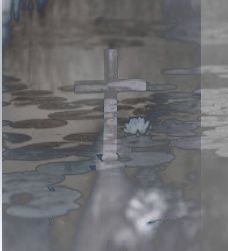
God/Love: the compassionate energy
of the interconnecting spirit.
Excerpt of an Interview with Paul Knitter
by Old Dog Documentaries.
Paul Knitter holds the Paul Tillich chair at the Union Theological Seminary.
He is the author of the book, "Without the Buddha, I Could Not Be a Christian"
Old Dog Docs: How has Buddha and your practice within the Buddhist tradition
informed your understanding of who God is or what God is?
Paul Knitter: First of all, Buddhism made clear something that I had
learned in my Christian study, when I was in the seminary, in the priesthood,
that God has to be a personal experience. It has got to come out of
who I am and what I find myself to be.
If God is not an experience—this I got from my teacher Karl Rahner—then I don’t know what I’m talking
about when I use the word G-O-D, God. Buddhism stresses that, primarily. That
is central to Buddhism. That for me has been a powerful challenge and a
powerful reminder which picked up so much of what I had been taught in my study
of Christian theology.
Where Buddhism then helped me to discover or how I might more deeply
experience the reality of God was in the Buddhist insistence that truth—they
don’t use the word “God”—but that truth, ultimate reality, the
way things are is to be found, is to be found within myself and within this
world.
In other words, what I call God is not an entity out there that has
to step in to my life. Buddhism stresses, or affirms, that truth is
that which we find within this world. So that it is not something that has to
intrude, intervene, but something that has to be discovered.
[Buddhism] just answered so many questions, difficulties I had with what is
often times an exaggerated Christian teaching, and talking about God as if God
is this supreme entity out there. You know, God as this infinite father being,
this super person. I feel that distracted you. You are looking out there rather
than looking into yourself. Rather than looking around you and the world around
you. So that was a tremendous help.
In the language of Paul Tillich, whose chair I have here at Union Theological
Seminary, the ultimate concern of Buddhism is enlightenment. They talk about enlightenment as
waking up to the fact—this is going to sound rather strange—waking up to the
fact that all is profoundly interrelated. Nothing exists unto itself. Nothing
has its own individual or individualized being.
We are all part of an interconnected reality that is vital, alive. That
functions primarily through compassion or what Christians would call love.
These are the primary characteristics that I think all Buddhists would
recognize as adjectives that you would use when you talk about becoming
enlightened or getting a little bit closer to enlightenment. That ultimate
reality consists of wisdom, awareness. Awareness of what? Of the
interrelatedness of all and compassion. And when that interrelatedness is alive
and well and when I am connected with it, I will feel. Not because I am told
to, but because it is my very nature. I will feel as Buddha put it: “compassion
for all beings” (for all sentient beings especially).
So, taking these Buddhist teachings and discoveries, I went back to the Bible. I went back
to the question of tradition. I went back to what my teacher Karl Rahner talked
about. And, I discovered with this Buddhist flashlight, looking at the ultimate
as interconnectedness, this interconnectedness that is alive, this
interconnectedness that by its very nature operates through compassion and
love. I started going back and looking at some of the central teachings or
symbols of my Christianity and one of them that just leapt out was spirit. This
means that God is spirit. What is spirit? Spirit is that which animates. Spirit
is that which fills us. Which moves in ways we can never truly perceive or
forecast. But spirit is alive.
The symbol of spirit from my Christian tradition became alive with meaning,
not just for my head but for my prayer, for my meditation: to feel or to
imagine the ultimate God as this beautiful interconnecting spirit.
I am not a New Testament scholar, but my colleagues tell me that there are
very few definitions of God in the New Testament. Maybe there are only two or
three where it says, “God is…”. Those instances come from the writings
attributed to John: “God is love.” “God is spirit.” Those are the two: love and
spirit. Love is the compassionate energy of the interconnecting spirit. So you
see, this is where God is no longer an entity out there.
I am not saying that Buddhism is the only way to discover this, certainly
not. But Buddhism is a way of helping Christians to perhaps come to a
deeper and I would say more personal, more mystical experience of God. That
reality, that inspirits us with interconnectedness (another word for love) and
that can hold us in its vitality and sustain us.
Buddhism has been a great help. And I have found it can speak to many
Christians in this way.